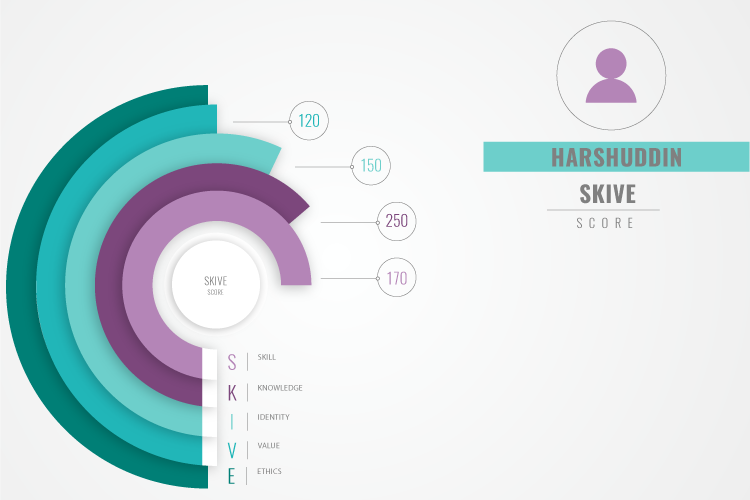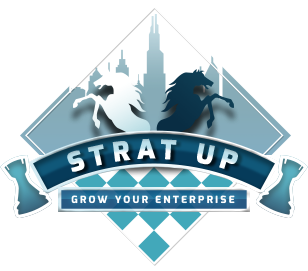

Evidence Centred Analytics for Skill Assessment


Any community of practice has a culture characterized by
skills, values, knowledge, identity, and epistemology. The culture and grammar that defines a profession is called an epistemic frame. These parameters have a grammar and a structure defining the profession.
Traditional methods of direct assessments only measure what a student has learnt or not learnt and typically tap students recall or utmost basic demonstration of skills. They fail to capture the students learning progress along with the epistemic frame of a profession.
StratUp is designed using an evidence-centred design (ECD) framework by combining competency, evidence, and task models. These models observe what students say, do, or make out of a circumstance to draw inferences about what they know, can do, or accomplish.
This connection between learning & behaviour provides validity for the assessment model.
SKIVE Score


Skills and Proficiency that need to be assessed are broken down into various tasks and embedded in the game. Players’ decisions on the tasks are monitored while playing the game non intrusively.
Various evidence of players’ actions captured through the game creates an individual’s SKIVE score. The SKIVE score is an evidentiary proof of an individual’s skills, knowledge, values, identity, and epistemology.
Player's Skill Assessment
Game Evidence
Player decisions are tracked non intrusively, and evidences are captured in an adjacency matrix to understand the co-occurrence of skills and the frequency of occurrence.
There are 43 learning use cases that are tracked through the game to construct the skill score.
Situational Judgement Tests
Business scenarios are embedded in the game in the form of situational judgemental tests to measure players’ responses and predispositions. SJT’s helps us capture the Identity and Values of players in the game.
Quizzes & Survey
During the course of the game and tutorial, participants take quizzes on various business concepts and test their knowledge.
We also capture players’ responses on certain standard research scales based on certain research objectives.
Learning Diary
At the end of every quarter, players get 5 mins to review their performance and record their failures and corrective actions. The learning diary provides us evidence of learning and how the mental models are shaping up.
Team Feedback
At the end of every gaming year, individuals rank their peers and provide them qualitative and quantitative feedback.
This information helps us corroborate data that has been captured non-intrusively
Chats
When participants are geographically seated in various locations, they communicate with each other using the in-built chat module.
Analyzing player chat data provides rich insights on the conversation that happens among players and thereby helping us draw insights on leadership, conflict resolution, problem-solving abilities of participants.
